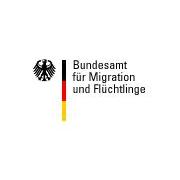Why SMEs are especially vulnerable to cyberattacks
Cyberattacks no longer target only large corporations. Small and medium-sized enterprises (SMEs) are increasingly becoming victims of hackers—through phishing, ransomware, or social engineering. Their often insufficient cybersecurity measures make them an easy and attractive target.
Common IT vulnerabilities in SMEs
Outdated systems: Many SMEs run legacy software that lacks recent security updates, creating potential entry points for attackers.
Weak access controls: Undefined or poorly managed user permissions enable unauthorized access to sensitive data.
Lack of awareness: Employees often lack training in cybersecurity, making them susceptible to phishing and manipulation.
What is an IT Security Health Check?
An IT Security Health Check is a comprehensive evaluation of your company’s IT landscape. It aims to identify weaknesses before they can be exploited and to recommend practical countermeasures.
The assessment typically includes:
- Network, server, and endpoint security analysis
- Review of access rights and password policies
- Backup and disaster recovery evaluation
- Audit of digital and physical security setups
Benefits of regular IT security assessments
Risk mitigation: Early detection of vulnerabilities helps prevent attacks before they cause damage.
Operational stability: Preventative actions reduce downtime and increase business continuity.
Customer and partner trust: Robust cybersecurity measures reflect professionalism and reliability.
How Devacon supports SMEs
With extensive experience in IT security, Devacon GmbH offers tailored IT Security Health Checks designed specifically for SMEs. Our security audits reveal vulnerabilities and provide actionable steps to strengthen your infrastructure—efficiently and individually.
Contact us today to schedule your free initial consultation.







